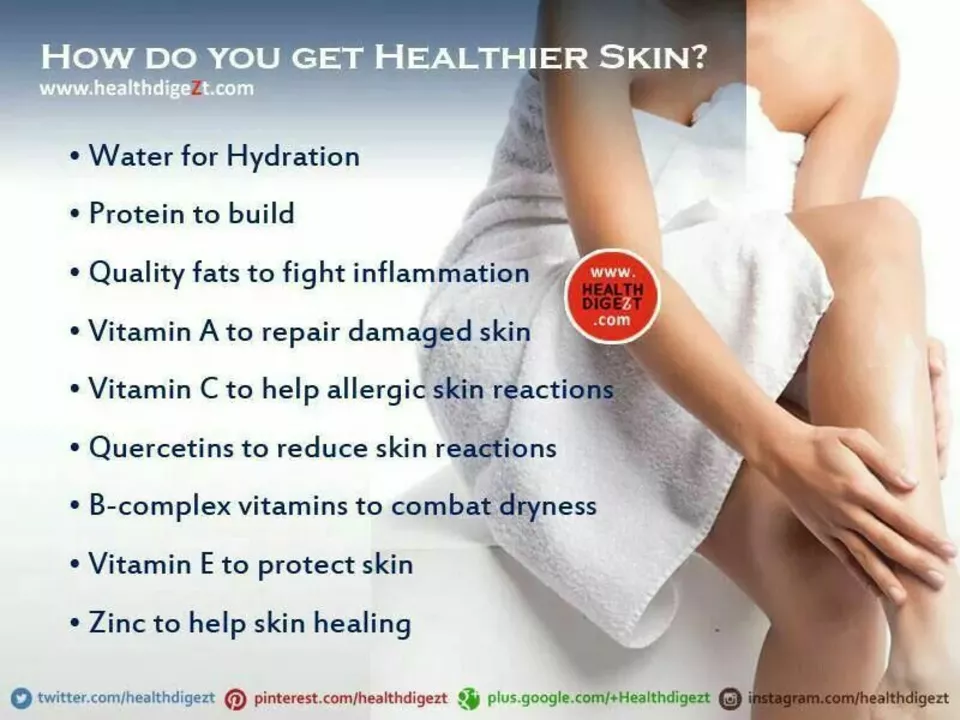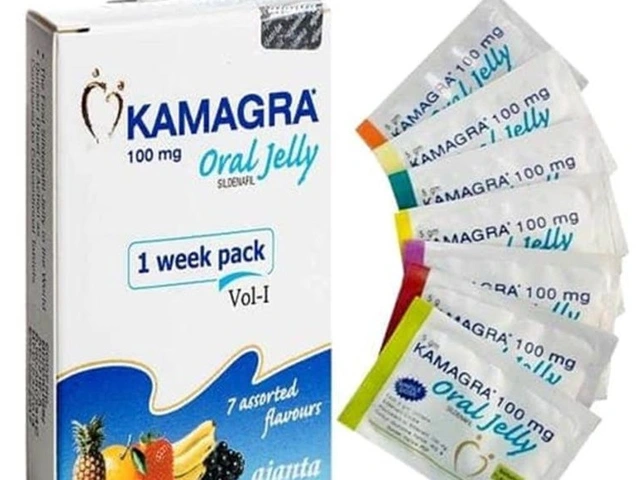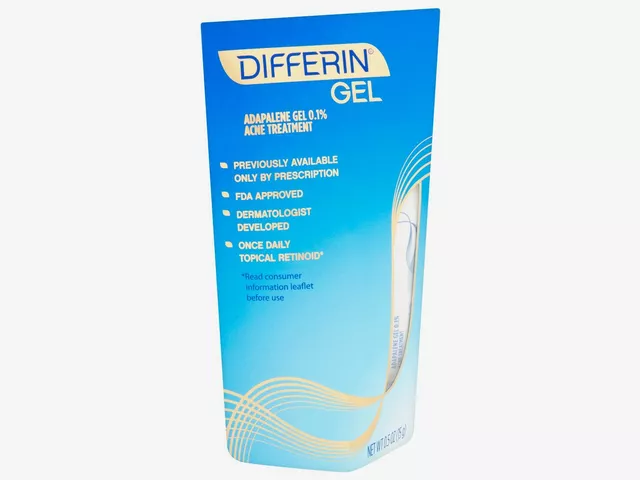Introduction: The Link Between Skin Rashes and Vitamin Deficiencies
As a blogger who has a keen interest in health and wellness, I often come across various research studies and personal experiences that highlight the importance of vitamins in maintaining optimal health. One topic that has caught my attention recently is the connection between skin rashes and vitamin deficiencies. In this article, I will explore this link in detail and discuss the various vitamins that play an essential role in maintaining healthy skin. So, let's dive right in and learn how to achieve radiant skin by addressing our vitamin deficiencies!
Understanding the Role of Vitamins in Skin Health
Our skin is not only the body's largest organ but also serves as a protective barrier against environmental aggressors. Therefore, it's crucial to ensure that our skin remains healthy and nourished. One way to achieve this is by consuming a diet rich in essential vitamins. These vitamins not only influence the skin's appearance but also its overall health. They help combat inflammation, promote collagen production, and repair damaged skin cells, to name a few. In the following sections, I will discuss the specific vitamins that are vital for maintaining a healthy complexion and how their deficiencies can lead to skin rashes.
Vitamin A: For Smooth and Blemish-Free Skin
Vitamin A is a fat-soluble vitamin that plays a significant role in maintaining healthy skin. It helps promote cell turnover, which is essential for preventing the buildup of dead skin cells on the skin's surface. A deficiency in vitamin A can lead to dry, flaky skin and even acne. Additionally, vitamin A deficiency can cause skin rashes, such as keratosis pilaris, characterized by small, rough bumps on the skin. To avoid these skin issues, it's essential to consume vitamin A-rich foods like carrots, sweet potatoes, and leafy greens or take supplements as directed by a healthcare professional.
Vitamin B Complex: The Ultimate Skin Savior
The B vitamins are a group of eight essential vitamins that work together to maintain overall health, including skin health. B vitamins like riboflavin (B2), niacin (B3), and biotin (B7) are particularly crucial for maintaining a healthy complexion. A deficiency in any of these vitamins can cause skin rashes, such as seborrheic dermatitis, characterized by red, scaly patches on the skin. To ensure adequate intake of B vitamins, include foods like whole grains, legumes, and leafy greens in your diet, or consider taking a B-complex supplement.
Vitamin C: The Antioxidant Powerhouse
Vitamin C is a potent antioxidant that plays a crucial role in maintaining healthy skin. It helps protect the skin from free radicals and environmental aggressors, promotes collagen production, and brightens the complexion. A deficiency in vitamin C can lead to skin rashes, such as scurvy, characterized by rough, dry, and scaly skin. To avoid this, ensure that your diet is rich in vitamin C sources like citrus fruits, strawberries, and bell peppers, or take a vitamin C supplement as needed.
Vitamin D: The Sunshine Vitamin
Vitamin D is another essential nutrient for maintaining healthy skin. It helps regulate the skin's immune system and has anti-inflammatory properties, making it beneficial for those with acne-prone or sensitive skin. A deficiency in vitamin D can cause skin rashes, such as eczema, characterized by dry, itchy, and inflamed skin. To avoid these issues, ensure that you get enough vitamin D through sunlight exposure, consuming fortified dairy products, or taking a vitamin D supplement if necessary.
Vitamin E: The Skin Repair Specialist
Vitamin E is a powerful antioxidant that helps protect the skin from oxidative stress and promotes skin healing. It is especially beneficial for those with dry or damaged skin. A deficiency in vitamin E can cause skin rashes, such as atopic dermatitis, characterized by red, itchy, and inflamed skin. To maintain optimal levels of vitamin E, consume foods like nuts, seeds, and vegetable oils, or consider taking a vitamin E supplement.
Vitamin K: The Unsung Hero for Skin Health
Vitamin K is an essential nutrient that plays a vital role in blood clotting and overall skin health. A deficiency in vitamin K can cause skin rashes, such as purpura, characterized by small purple spots on the skin due to bleeding under the skin's surface. To ensure adequate vitamin K intake, consume foods like leafy greens, broccoli, and Brussels sprouts, or take a vitamin K supplement as directed by a healthcare professional.
Conclusion: The Importance of Addressing Vitamin Deficiencies for Healthy Skin
In conclusion, it's clear that there is a strong connection between skin rashes and vitamin deficiencies. By ensuring that our diets are rich in essential vitamins, we can maintain healthy skin and prevent various skin-related issues. If you suspect that your skin problems may be due to a vitamin deficiency, consult with a healthcare professional for guidance on the appropriate supplements and dietary changes. Remember, a healthy, radiant complexion starts from within!







Kyle Tampier
May 10, 2023 AT 22:21Musa Aminu
May 11, 2023 AT 19:19robert maisha
May 13, 2023 AT 06:52Alexander Ståhlberg
May 13, 2023 AT 07:38Robert Andersen
May 14, 2023 AT 11:22Eric Donald
May 15, 2023 AT 02:32Brenda Flores
May 16, 2023 AT 23:20Jackie R
May 16, 2023 AT 23:22Josh Arce
May 18, 2023 AT 05:41Eli Grinvald
May 18, 2023 AT 23:33Alexis Hernandez
May 19, 2023 AT 22:54brajagopal debbarma
May 20, 2023 AT 04:11Carly Smith
May 21, 2023 AT 16:55Kurt Stallings
May 22, 2023 AT 23:50Angie Creed
May 23, 2023 AT 03:05Michael Ferguson
May 24, 2023 AT 13:05